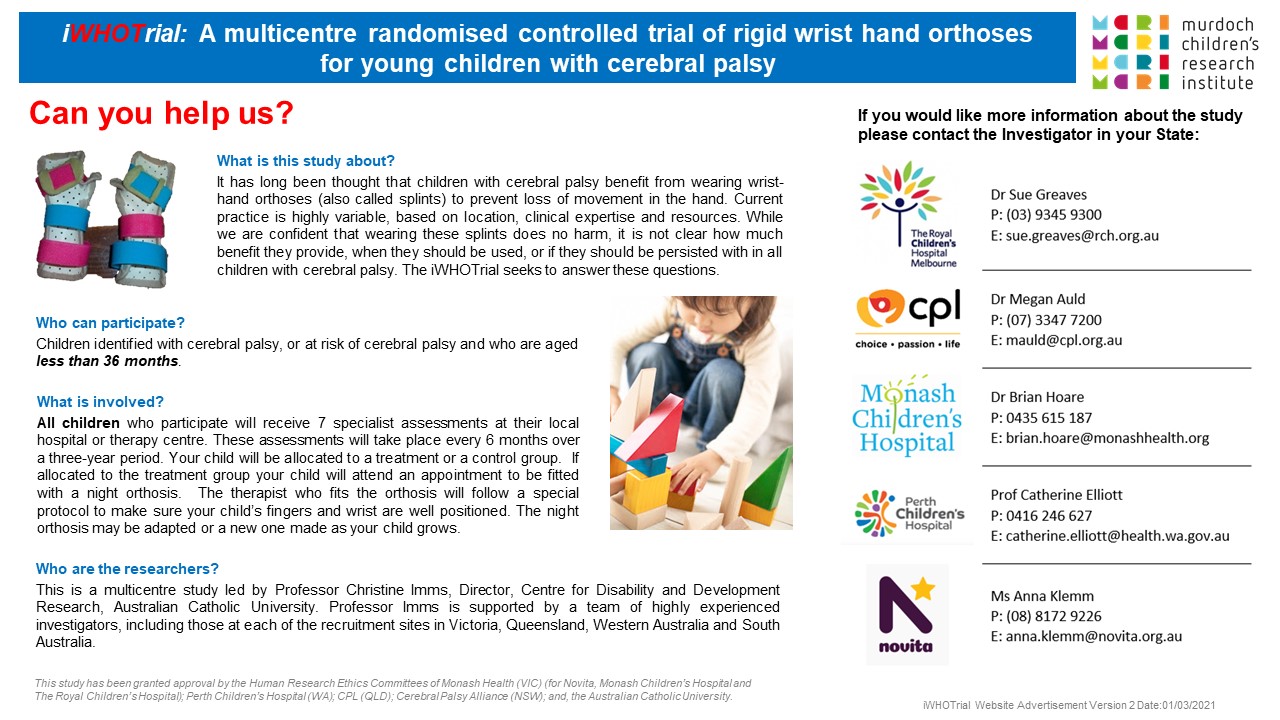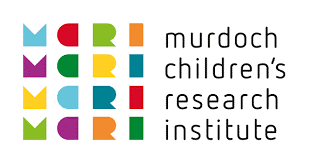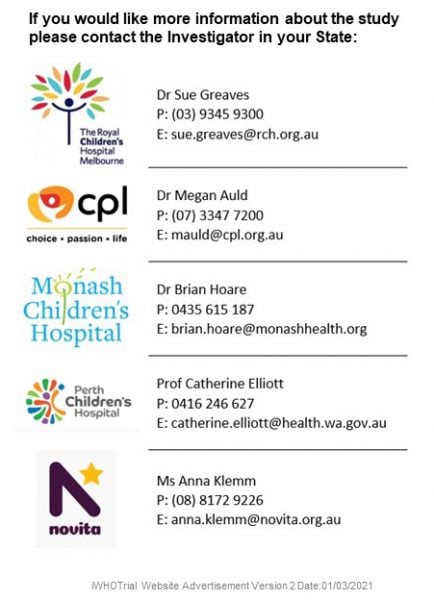
Seeking research participants: iWHOTrial
iWHOTrial: A multicentre randomised controlled trial of rigid wrist hand orthoses for young children with cerebral palsy
What is this study about?
It has long been thought that children with cerebral palsy benefit from wearing wrist-hand orthoses (also called splints) to prevent loss of movement in the hand. Current practice is highly variable, based on location, clinical expertise and resources. While we are confident that wearing these splints does no harm, it is not clear how much benefit they provide, when they should be used, or if they should be persisted with in all children with cerebral palsy. The iWHOTrial seeks to answer these questions.
Who can participate?
Children identified with cerebral palsy, or at risk of cerebral palsy and who are aged less than 36 months.
What is involved?
All children who participate will receive 7 specialist assessments at their local hospital or therapy centre. These assessments will take place every 6 months over a three-year period. Your child will be allocated to a treatment or a control group. If allocated to the treatment group your child will attend an appointment to be fitted with a night orthosis. The therapist who fits the orthosis will follow a special protocol to make sure your child’s fingers and wrist are well positioned. The night orthosis may be adapted or a new one made as your child grows.
Who are the researchers?
This is a multicentre study led by Professor Christine Imms, Director, Centre for Disability and Development Research, Australian Catholic University. Professor Imms is supported by a team of highly experienced investigators, including those at each of the recruitment sites in Victoria, Queensland, Western Australia and South Australia.
Download the information sheet
Contact Georgie.rose@mcri.edu.au for information
This study has been granted approval by the Human Research Ethics Committees of Monash Health (VIC) (for Novita, Monash Children’s Hospital and The Royal Children’s Hospital); Perth Children’s Hospital (WA); CPL (QLD); Cerebral Palsy Alliance (NSW); and, the Australian Catholic University.


